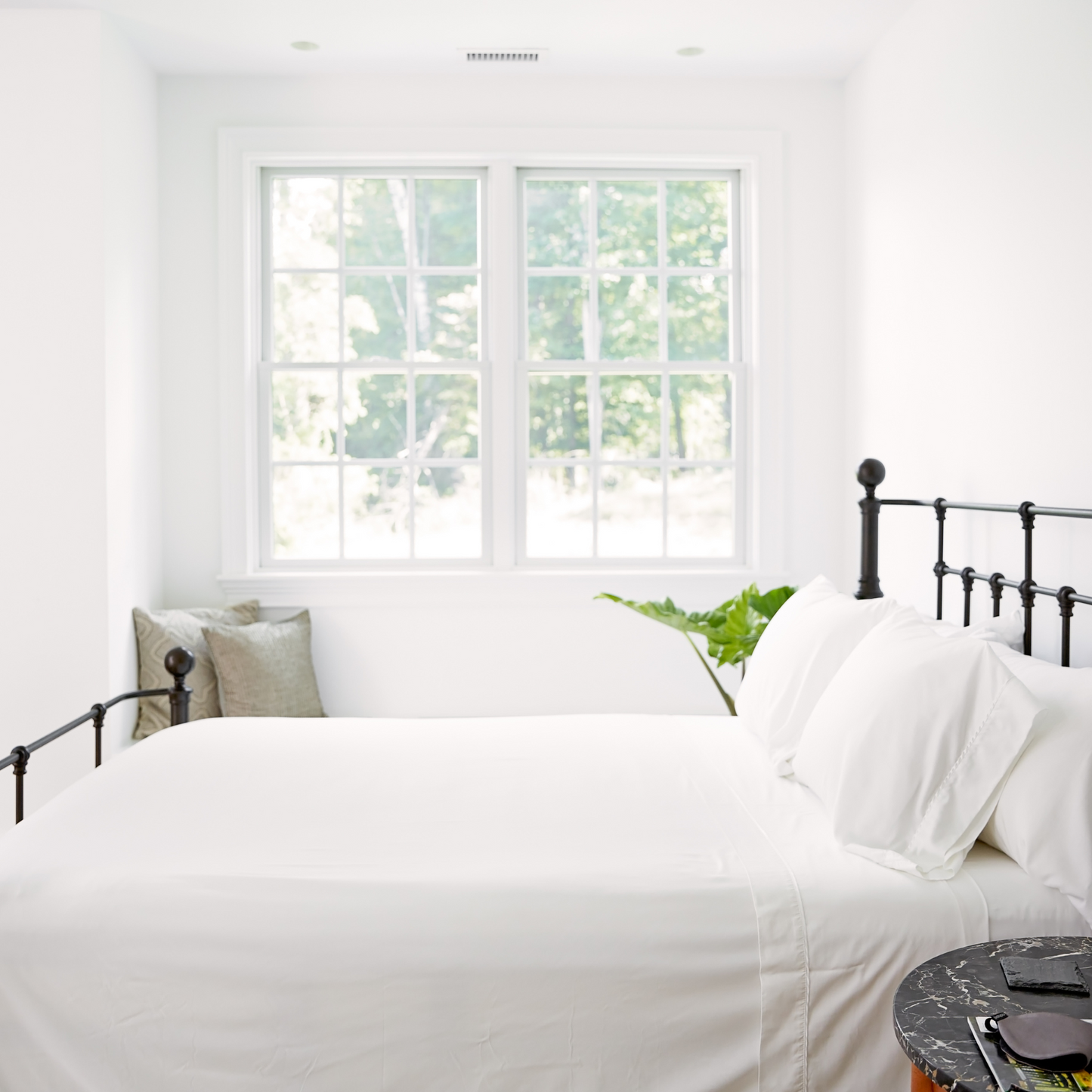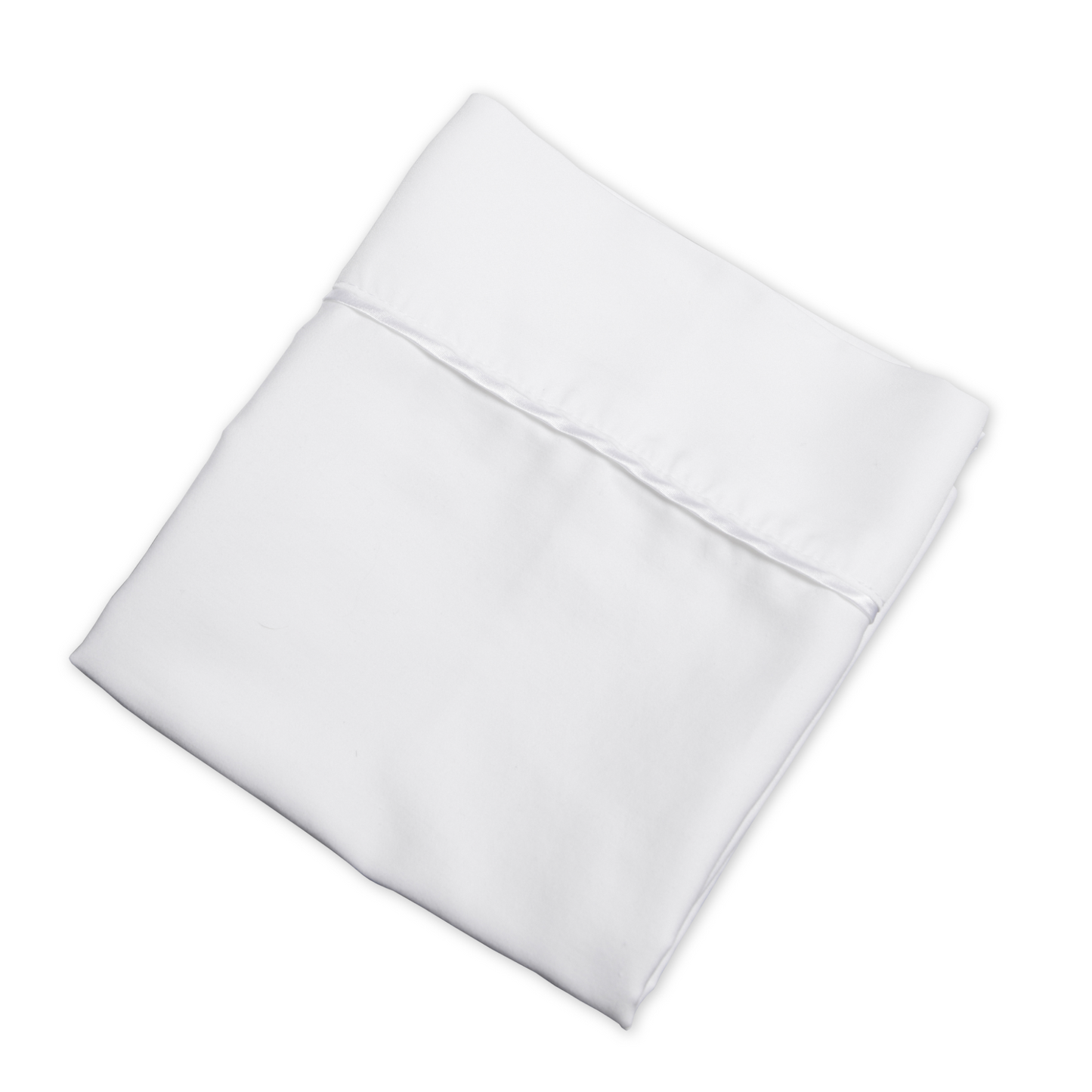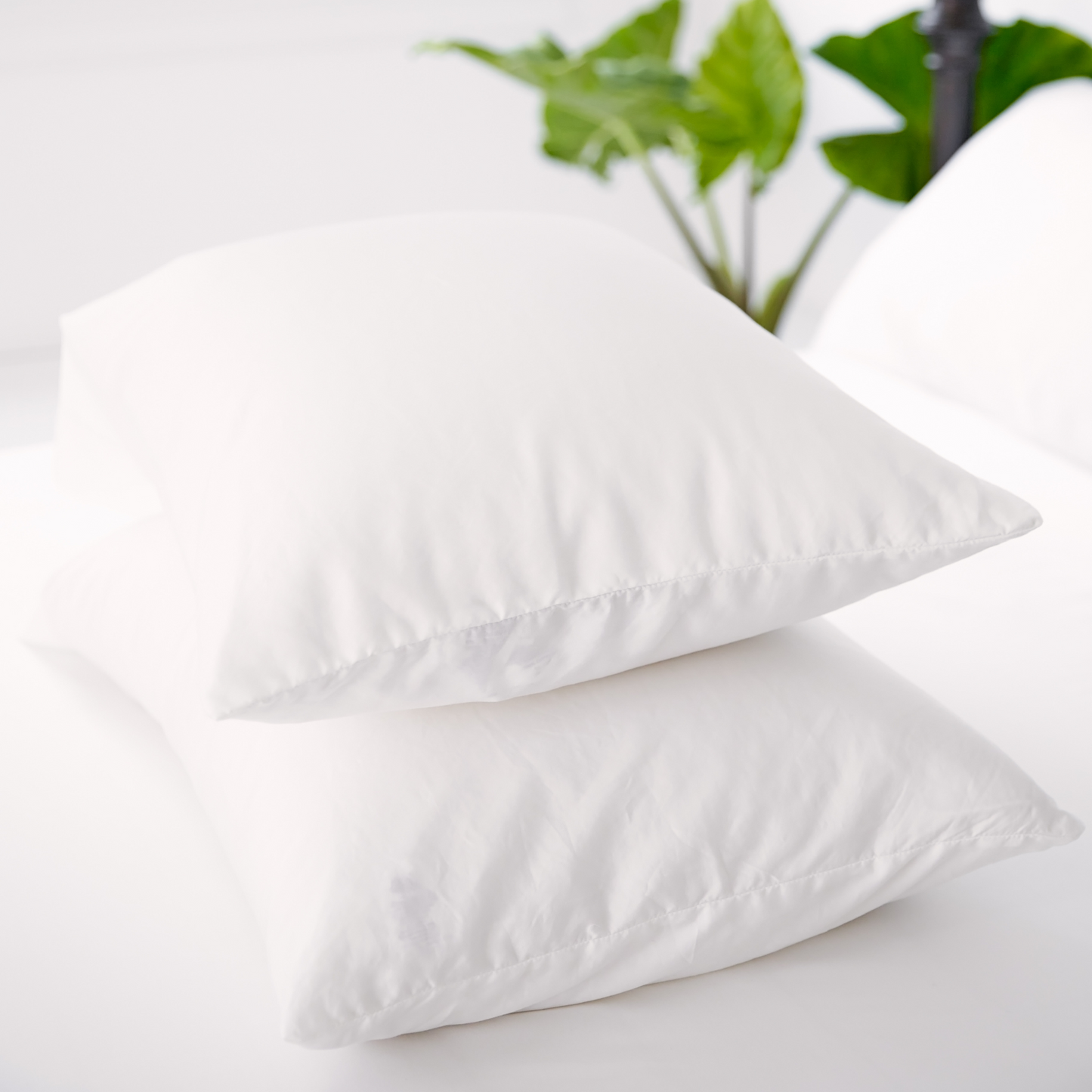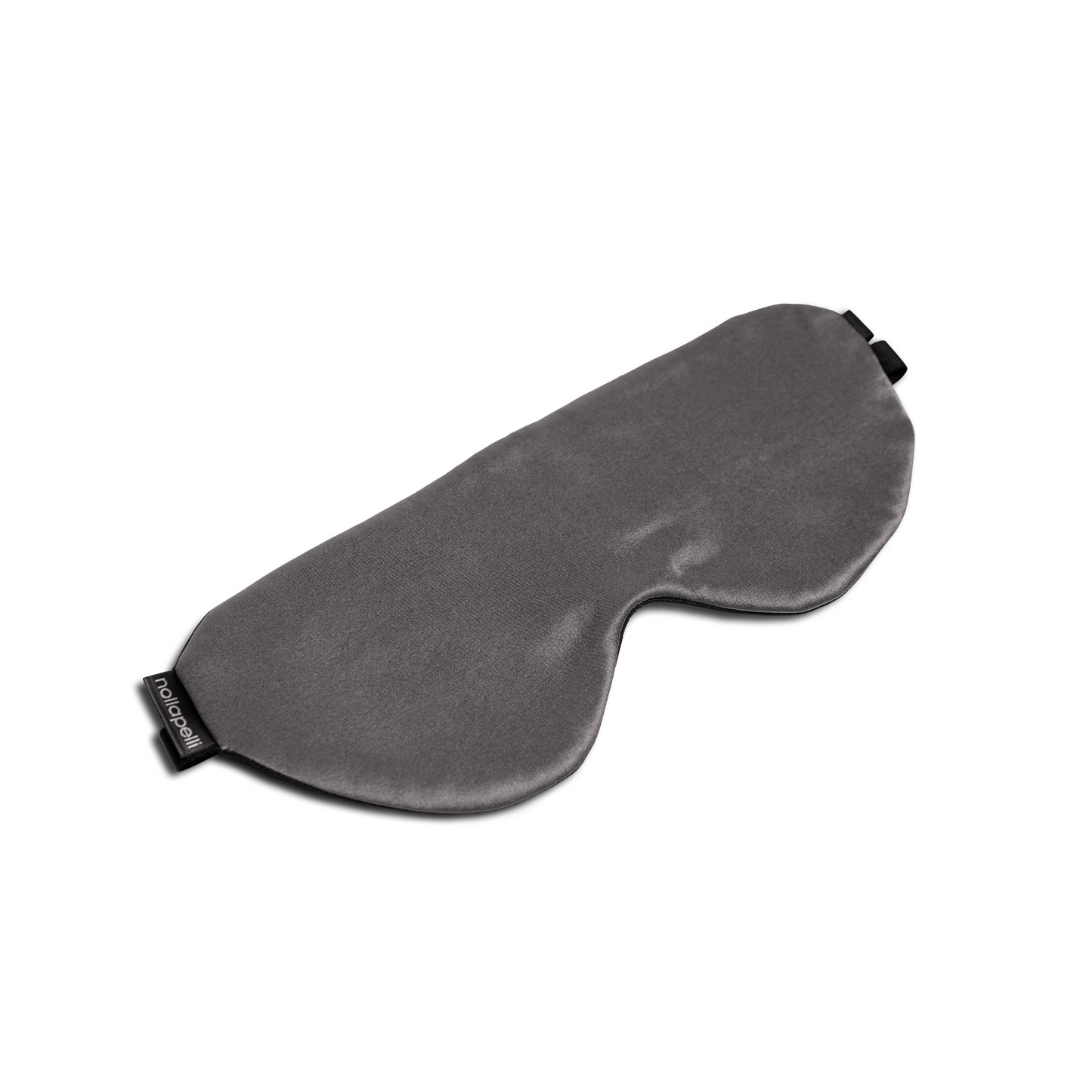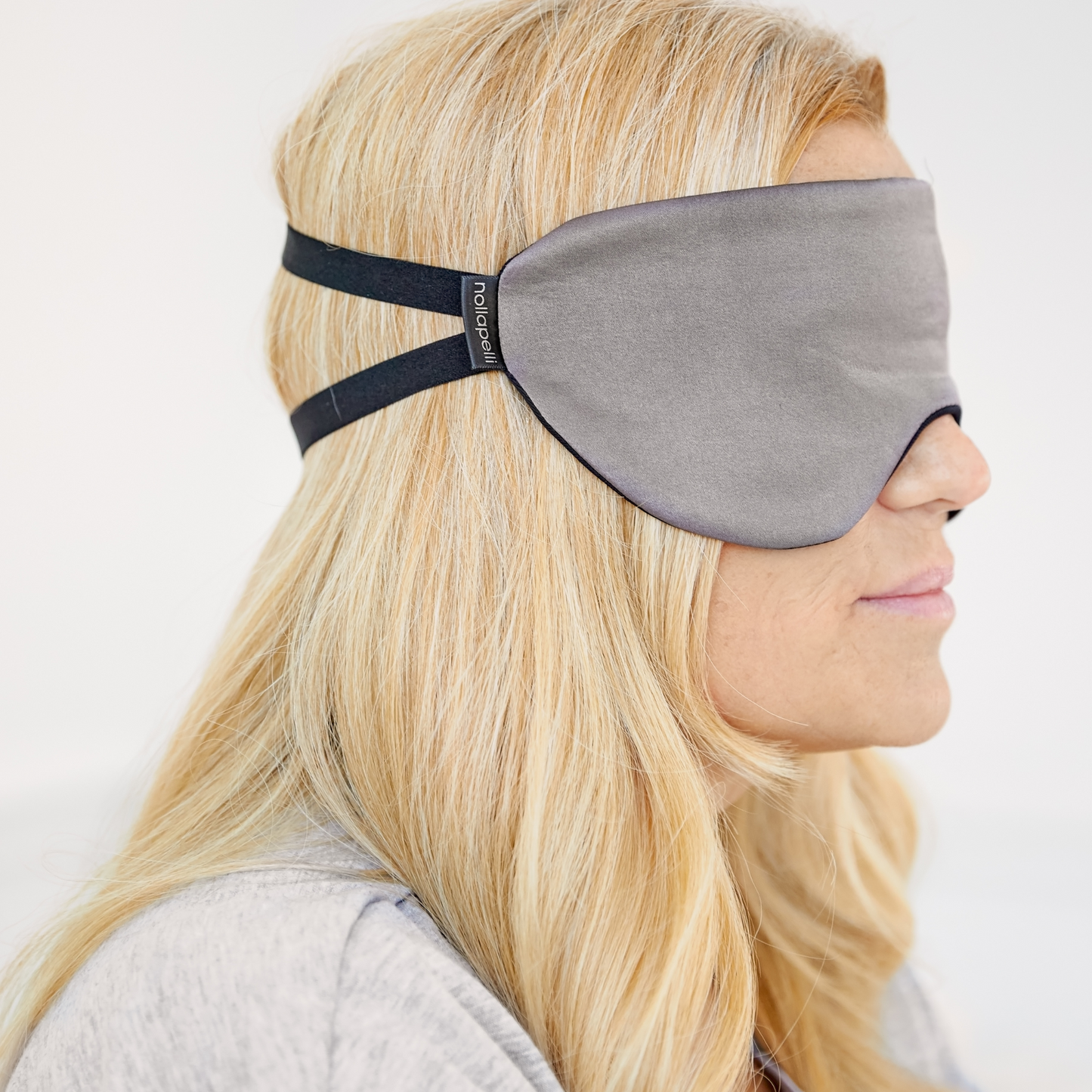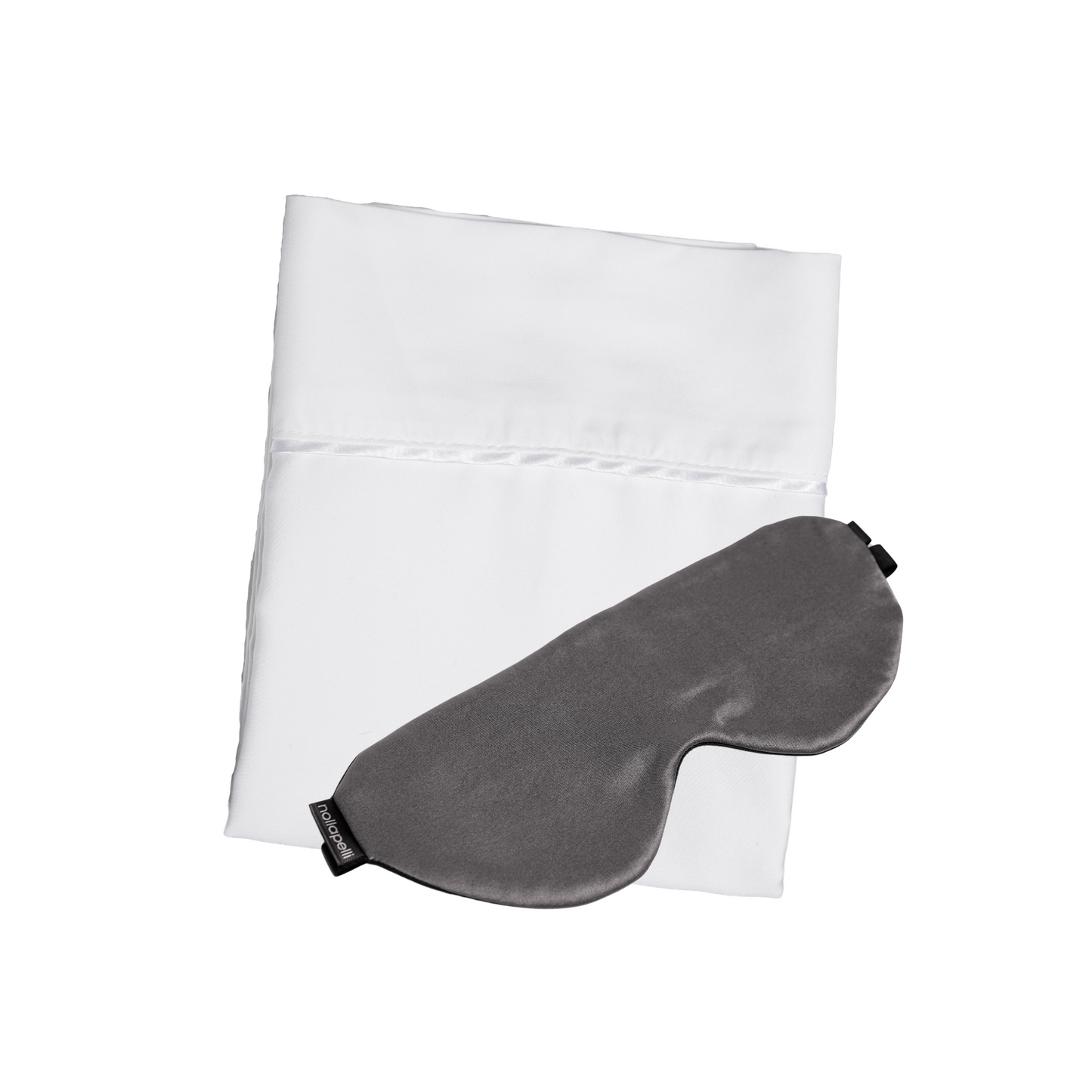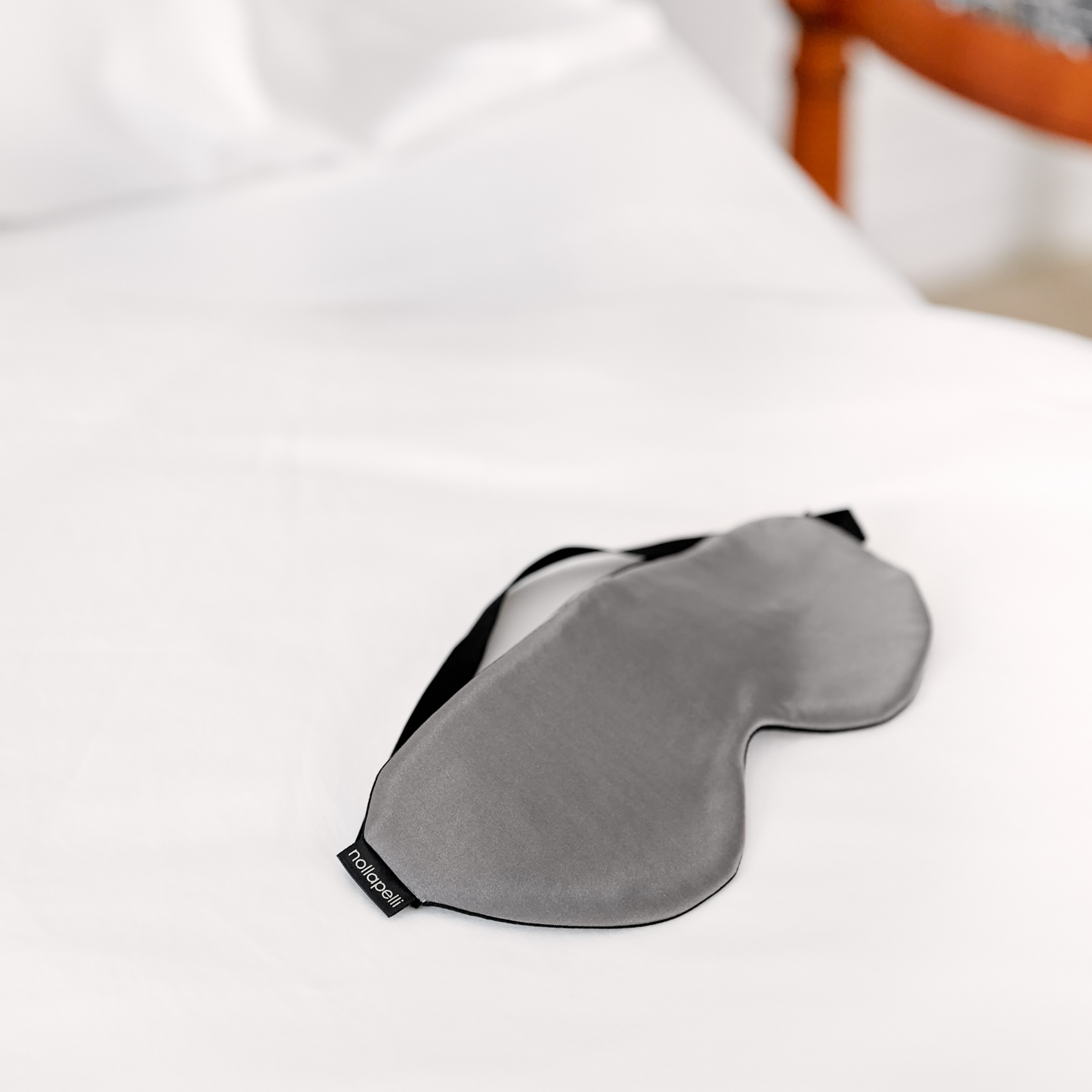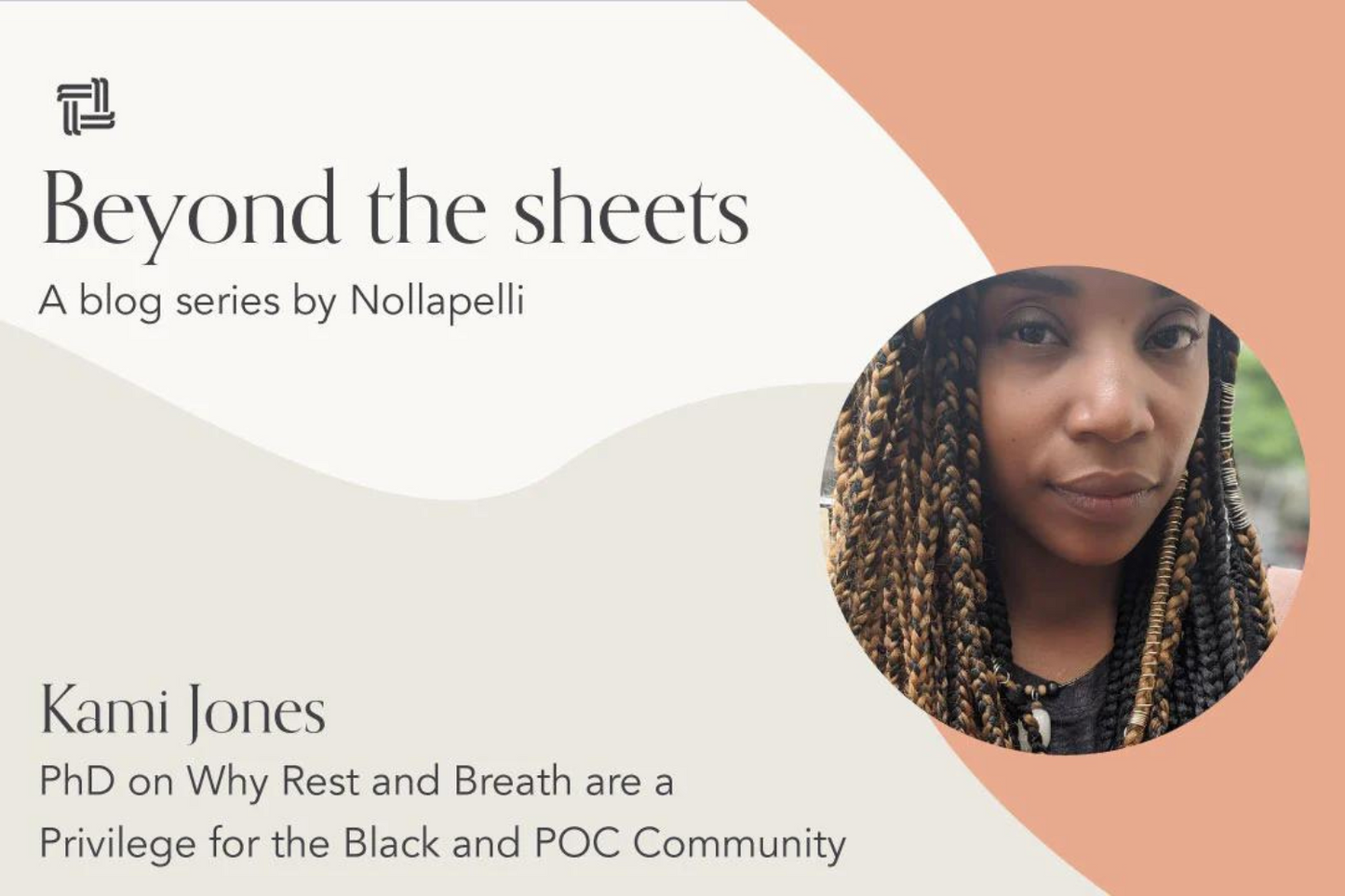
Kami Jones, PhD, is a developmental psychologist, mentor, researcher, experienced yoga instructor and creator of A Place to Breathe. Most importantly, she is a protector of space - for herself, her loved ones, for the BIPOC community, and you and me.
Our conversation covers the connection between breath and quality rest. Kami also explains the daily, often unnoticed by the white community, traumas experienced by the BIPOC community that lead to quality rest and restorative breathing being a privilege, not a right. You will leave this talk provoked, in the best way because Kami is a force taking up space she deserves.
…
Jessa Gibboney (Nollapelli): Let's begin with A Place to Breathe. It's a digital platform to connect with people who need support in their current space. What led you to create this space? Was it the pandemic? Was it something beyond that?
Kami Jones: I have been doing this kind of work informally, where breathing is basically exactly what it sounds like. I'm offering sessions. 30 minutes could be 15, could be 45 where we just sit and we do whatever it is you need to do. And if that is literally sit and breathe, that's what we do. If you want to talk through something, that's what we do. If you want to vent, that's what we do. That's what you do. If you need someone to listen on there for that, if you need a response, if you need someone to help you move through things, I'm there for that. I started it for POC and particularly for women of color.
I did start it because of the pandemic, but I had been doing it informally for a while, before that my friends would reach out, people who I know people in my space would reach out. I think that started because I was a yoga teacher. And if you're a yoga teacher, you kind of become a semi-therapist. People come to you and they share things with you, all sorts of things that maybe are not your business and they'll come and they'll share with you. And you're kind of just like, okay, so you sort of become the sounding board anyway, but then my doctoral, my degree is in developmental psychology. So I did have a background to lean on when people came to me with things, I wasn't talking from nowhere, but had a certain understanding of some of the theories of why people might be feeling a certain way or why they might be communicating a certain way.
I'm an introvert. I love alone time. I thrive on alone time. And so the pandemic sort of made me feel like I had an opportunity to be myself without feeling judged.
Jessa: You're not the first person that I've heard say that.
Kami: Yeah. So this pandemic brought on this opportunity for me to not have to hang out at all. And I was just kind of loving being on my couch.
I had a lot of plans and goals. None of them came to fruition. I don't care. It's okay. I was going to come out of the pandemic, fluent in French. It did not happen. I still know the same amount of words I knew going in. But what did happen for me? I started to ground more, incorporating a lot more grounding practices. I started doing a lot of Orisha dancing and singing and all these kinds of things. I felt really good. And a lot of other people around me did not feel so good and I was seeing it and I was hearing it. I wanted to create a place, especially for women of color, because at the same time, then all of these things started happening - Ahmuad Arbery, George Floyd, Breonna Taylor.
It was back to back. And it's always like this. This is not a new thing, right? People have cameras now. And everybody is stuck in the house. So now we're going to pay attention. These are not new stories, but it's like this constant - this happened again, this happened again, this happened again, this happened again. And it's just beating you. I wanted to make sure that people had a space, at least a few people had a space where they could come if they needed to just sit and cry to do it. And on top of that was COVID right? There were people who were losing people and just wanted to come and pay homage.
There were just so many things going on for people. I was in a really blessed space. I had food. I didn't have to worry about it. I didn't have to worry about where I was going to live. My family was safe. And so I was like, well I'm thriving in this space. What can I do? How can I support folks who aren't? And so that was my way of kind of formalizing what I had been doing anyway. And introducing people who I didn't know into that space and giving folks who I had no relationship with an opportunity to have somebody who they don't even know, and you can tell me what you want. You can not tell me what to do. It's confidential. I just wanted to create that space. That was my way of giving during this time, since I felt like I was doing really well.
Jessa: How would you help someone find out what they need? I know it sounds simple. I think sometimes people don't even know what they need. They feel this tension and the body doesn't lie. Right? They feel it physically.
Kami: Well, I can't say that I can help you figure out what you need in 30 minutes. Right? Like that might not be what happens. But what they do provide in the intake form is just a summary of what is happening. What is it that you want to talk about so that I can get an understanding of what's going on in your world right now. If I have a small understanding of what it is that you feel like is blocking me, why are you coming to me basically, then that gives me a little bit of something to work with. My real life job is actually a researcher. When I'm at work and conducting one-on-one research sessions is to figure out what people need with context. There are actually techniques and ways that you ask and ways that you ask questions that are going to help you uncover what the need is underneath. What the ask is. Cause a lot of times people will ask you for something, but that's not really what the need is. The need is actually something else.
But if I have an understanding of where are we starting, why are you here? Then, for me, it gives me enough. It gives me enough information to create the path. The other thing that I do is prior to those sessions, I sit down, I ground, I asked for my support. I think a lot of it is not just me and leaning on my own knowledge, but leaning on ancestral knowledge. This is what I'm getting from you. I tap into that and we just go on that path. So half of it is a background in doing research and understanding how to get to the core need as opposed to the explicit or stated need. And the other part is some people would say, give it all to God, but you know, I let the ancestors kind of do what they got to do through me so that I can provide support.
Jessa: You've kind of answered this question in nuggets, but you seem like a person that thrives in change. I've kind of pulled them out from some of your answers - you are introverted, the grounding, the intersection of research study background and intuition. Why do you thrive?
Kami: I think that that's an important call-out and I don't think that thriving in change necessarily, or having that spirit of, or desire to have change. It can go both ways, right? There are some times like 2020 when that is absolutely going to carry you through. And then there are some times when somebody is like, you need to sit your down. There are definitely two sides to that. Right? I think that everybody has their thing. Right. So, teaching someone to thrive and change, I don't think that that's a thing. I think that that just happens to be naturally who I am. That is my spirit. It has always been, I have always loved to, and to do everything. My partner, for example, is completely opposite. And there are times when that's what you need. Right? I think that thriving in this is what worked for me in 2020 is the fact that I am a person who has always wanted to take everything, flip it over and start over, start over again. And I think that's so important. When we think about Orishas in the West African religious traditions that came to the U.S.there's a particular Orisha who she she's like the Orisha of the thunder and lightning and her whole thing is to come in and just kind of start over again. I connect to that. I've always been attracted to that energy. Let's try something new. Let's let's do it. What you want to do, you want to fly to Botswana? Never been there before. Yeah, let's do it when I was in college and I went to Europe for the first time. I actually went for a semester abroad. It was my first time ever in Europe. And I went for six months and then my roommate and I would just hop on a train or a cheap flight to like some other city and not have any hotels, not have anything booked. We just go. So I think that that's always been my spirit. That is what helped me through 2020. And that is why for me, it was a very different kind of year. It was a year that I felt comfort in because I like things being thrown all over the place. It makes me feel like I have an opportunity to start again or to start something new.
Jessa: I think a lot of people would feed off that energy because that energy isn't being created for themselves. And sometimes you need to feed off other people to kind of get yours in motion.
I want to pivot to sleep - about sleep and A Place to Breathe. You said you can come and you can do whatever you want, including if it's breathing. What is the connection between breath and sleep?
Kami: This is a loaded question. Jessa just throws it in there. She's like, all right, well, let's answer this one.
First, I want to clarify when we talk about sleep and for anybody who might like to jump into this conversation, like we're talking about quality sleep and rest, not sleep. I know that sleep also becomes a defense mechanism for things that are not healthy. Right? If you're depressed, a lot of times you can't move and you just want to sleep the whole day and you can, but it's not a restful sleep. It's not necessarily sleep that we're talking to like blanket sleep, but more so the idea of feeling rested.
When I think about breath, they're the things that are so natural to our body and that we literally cannot live without. And that will happen regardless of, of whether we want them to, or not. Our bodies are going to break down or sleep or collapse when we need them to, and we are going to breathe. We don't learn to breathe and we don't learn to sleep. That is happening in the womb before our brains even really start to function or learn anything. I think that there is a deep connection on the level of, these are things that our bodies are gonna do with, or without us unlike eating, right? You can starve yourself. You really can. You need food in order to survive, but that's not something that your body has to do.
When I think about the relationship, breath and sleep, and I think about it, particularly if I'm thinking about black women and I think about the year 2020, and the amount of times that I sat in my house, watching the news like this [Kami tightens and lifts her shoulders, holds her breath], and didn't even realize that I wasn't breathing. And had to go... [Kami releases a deep breath out]. You can feel that release come from your body. That to me is that it has that underlying same idea of rest. You have to actually acknowledge it. It's not something that happens on its own. Even though we are breathing, what kinds of breaths are we taking? Similar to sleep, even though we're sleeping, what kind of, what kind of sleep are we getting?
As a yoga teacher or yoga practitioner, that breath is super important because we can stand there and we can do practicing and our breath. There's air going in and out, but we're not really giving our body what is needed through the breath. Right. And so when I thought about this this year, and the reason why A Place to Breathe was the place it was because I know that people literally were not breathing.
When you think about the stress factors that people of color feel every day, just in terms of when my partner leaves the house… I'm thinking, okay, this is a black male. He's going into the city. If he's not back by a certain time, I'm like, okay let me start, let me text him. Let me see where he is. If he doesn't think to text me and say, Hey, I'm going to be 30 minutes late. I'm on, you know what I mean? My immediate response is what happened. That's not something that other people have to think about. English is his second language.So I'm thinking did the police stop him and ask him something? Maybe he wasn't able to answer it correctly. You know what I mean? There are all these things that if he is 30 minutes late, I'm freaking out. That's my experience every day.
When I think about breath, I think that this is the kind of trauma that people of color are dealing with on a regular basis, such that it's not even something that we recognize as trauma. It's not something that we recognize as affecting our health. It's just something that we live with and that we just, it's just a regular day. And so it's even more important that in those times we sit and I want to say, you sit and take a breath, but you really, can't not until you hear from your partner that he's okay. Once that moment happens, it's really important that you sit and go, okay, all right [Kami exhales]. Because the anxiety works and is going into the blood and is shooting all of that force, how do you even rest after that? I think about rest, similarly, and I've mentioned before, sleep is one thing, but like being able to relax that tension, when you get in the bed, being able to have the support that you need to even get a good sleep.
These are all things that are, that are privileges, right? These are not foundational things that everyone gets to have, like being able to even just lay down and, and not what if you're working a whole bunch of jobs and then you have to come home and you've got to cook food, and then you're taking classes. At 3:00 AM, you're waking up to do your homework before you go to work and blah, blah, blah.
I had students when I was teaching, who would always come to class, had one student in particular, he would always come and he never did his homework, but he was really enthusiastic about the class. I talked to him like, what's going on? He would leave school. He had his full-time school. He would leave school, go and work at a pizza restaurant. He would leave the restaurant at about 3:00 AM to get home and then be at class at eight o'clock in the morning. So when was he resting? The time to rest is a privilege. The ability for your body to rest is a privilege. And then the ability to have something that's restful to sleep on is a privilege.
It’s the gap [Sleep Gap] is when we talk about it and we say, we haven't done enough research, it's kind of like, we've done enough other research to be able to put together a pretty solid repertory of information that demonstrates the sleep gap.
This same student, one day, didn't come to class. Well, what happened when he came the next day and he was coming home from work at 3:00 AM on a bicycle with a pizza in his hand, he got stopped by the cops and taken to jail because he was out at 3:00 AM and he looked suspicious being on a bicycle with a pizza. These are the kinds of things. What was his mom thinking about when he didn't show up at home? So there are all these kinds of things that we deal with daily and regularly that just make getting good breaths, oxygen, eating, breaths, and rest difficult.
This is a space that people of color live in regularly because of simply going outside.
Jessa: You are hitting Important factors on the sleep gap and it's something again in our anti-racism work here at Nollapelli we have learned a lot about, but there's still so much to learn. And there's still so much that we need to open our eyes to because sometimes the daily things are what are missed. Right? We [white community] can talk about these huge systematic things in these, which are so important, but the daily things, the ones that just chip away...
Kami: It's interesting. You know, I work a good job. I have an education. I am for all intensive purposes in the white world an acceptable human being. But when I go into the store, when I go into a fancy store, I'm followed just like the next person of color. I am looked at. I am followed. I have people right on my tail. Right. That, even that little bit of thing, like when that happens, it's like the moment you see that person come right behind you to make sure you're not stealing. It's literally that feeling. And then it's like, do I have to argue, am I going to have to curse this person out? Who am I going to have to tell off? Those are the things that really perpetuate that anxiety that we live in. So when a big thing, like a George Floyd or Breonna Taylor, when that happens, it's just like, Oh.
It's just another thing. It's a culmination. We have enough of the small things regularly all day, every day at work, the conversations at work you know, the microaggressions, the things that are, it's hard to prove that you said that because I'm black, but you knew you did. You know what I mean? That you're dealing with regularly that just makes breathing, makes taking a breath hard because you've got so much in there you have to like acknowledge.
Jessa: People using your services. Have you felt like there has been a good response?
Kami: Yeah, more so than I had initially imagined to be honest with you. Then I had to take some time off because towards the end of the year, I was getting crowded. I needed a break. But, it's picking back up. Then, I had people who had recommended me to other people and mind you, these are completely free sessions. Right? I try to do them on my own time, like in my free time as opposed to just like having them open all the time, because opening that kind of space requires a lot of energy.
There's like a lot of grounding that I have to do before I let myself enter into somebody's space or open up my space. I think if I weren't working a full-time job and having other things going on, then I might be able to do it more. But I'm really limited in how much of that I can actually do because I'm taking on that energy. The response that I've had has been really great and probably as much as I could handle.
Jessa: Well, kudos to you for doing the work. Not everyone, when the shit hits the fan, says okay, what can I do to help? A lot of times it's just self preservation, right? Which is fine. I have one last question. I think I might know your answer, but what is one thing you do for your sleep every day?
Kami: I want to know what you think my answer is.
Jessa: Well, I think it's breathing, it's the breath.
Kami: I feel like I need to go with your answer because my answer is I'm human. I'm a person and I'm still a black woman. That means I'm not doing what I need to be doing. Like I said, in the beginning of this call, I am not worried about whether or not I'm going to eat today. I'm not worried about whether or not I have a roof over my head. I'm not worried about my family and their safety and their health, because I know that they're good. I'm less worried about my partner because he's usually inside of the house. There are life foundational things that right now I am not as stressed about which puts me in a position where it's easier for me to go to sleep. Right?
I'm not dealing with so many of those tensions of going outside, those things that enter my world. Once I leave my comfortable space - going into the office, going into the store. I don't think that I am dealing with a lot of the weight that other people are dealing with. Particularly people who look like me. I am privileged in that way that I can, I have a bed, number one, it's a comfortable bed. Number two, I can put on my AC when I go to sleep and I can lay down, and knock out. And so I think that for me, it's almost an unfair question, right? Because I'm living in a space where I have a little bit less tension right now.
I can go to bed and I've also trained my body that when it gets in the bed, it's time to sleep. Cause that's a thing you have to actually train your body to go to sleep when it gets in the bed. But that I have a bed that I have a house, a roof over my head, I think puts me in a space that not everybody is in.
My sleep practices are not so great because I can just lay down and go to bed. But, I will say that one of the things I learned in one of my teacher trainings was finding some sort of ritual when you either wake up or when you go to bed, finding some sort of ritual that helps bring you into that place, whether that means a little bit of lavender oil, rubbing your feet with lavender oil and giving yourself that moment to ground down, whether it means just sitting by the side of your bed and doing a little one minute meditation. I love my crystals, sitting with a crystal and rolling it around in your hand. I do have a crystal under my pillow. There are so many small practices that I've always said, I want to incorporate these into my rest. But what I do is I rely instead on my machinery [Kami points to digital watch] that tells me it's time you go to bed. Then, that tells me how well I've rested. I think that for me, at least over the past two years, I've actually been resting well. Prior to that, I had a lot of trouble sleeping. I think it's funny that you link it to the breath. I think that it did have a lot to do with it. The reason why I'm able to sleep better now is also because of some of the practices I've taken up during the day, which is some of that is my Orisha dancing and my Resha chanting.
So, having an opportunity to ground down to feel like I've connected with the ancestors has really taken me to a place where I lay down in that bed. But two years ago, I think I was suffering from depression a little bit and I wasn't sleeping the whole night. I just kind of did it. I had to reconnect with something. I've been doing yoga for the past, maybe 20 years. And then something shifted in that practice. I've kind of put that practice on hold and brought in some of these other practices, which just helped me feel very grounded during the day. So I'm in it, which is also, I think why my 2020 felt a little bit less chaotic because I'm with intention, intentionally finding practices that helped me ground and feel grounded.
When it's time for me to sleep, without all those external stressors and with the fact that I'm feeling very connected with the Earth, I'm finding it much easier for me to sleep and to find rest. I would still suggest though that for folks who are having a little bit more difficulty, that they find a supportive Supta Baddha Konasana, for example, before they go to bed for 20 minutes, put the soles of your feet together. Let the knees open wide, lay down, but support yourself with some pillows. I recommend that to a lot of folks who deal with anxiety or deal with ADHD because it just helps them to ground and release or like laying down on the belly with a pillow underneath your belly for 20 minutes. Some sort of restorative posture before you go to bed to help you get into that space and then get in the bed or some simple breathing techniques. But like I said, I'm human.
Jessa: Thank you so much, Kami. I could just listen to you all day.
Kami: I'm glad to hear that. Thank you so much. It's been a pleasure.


